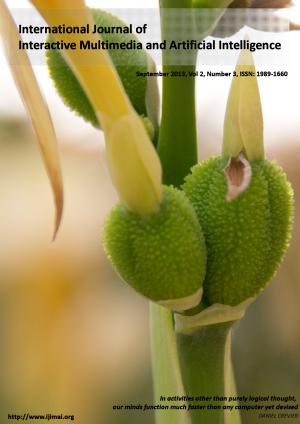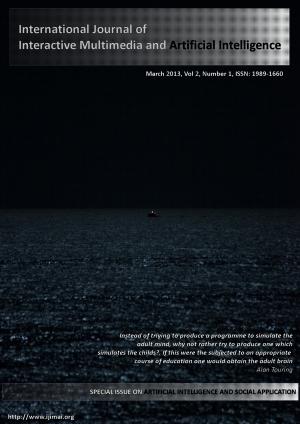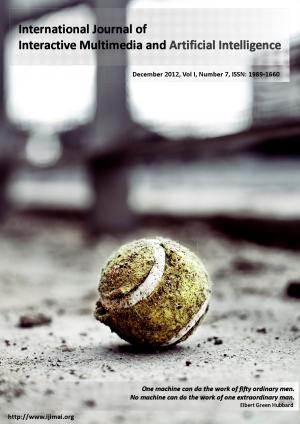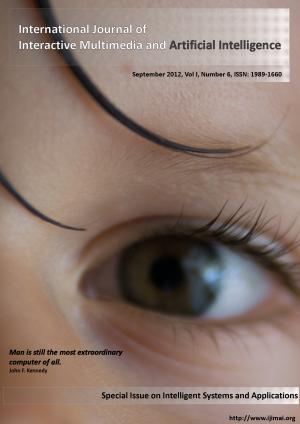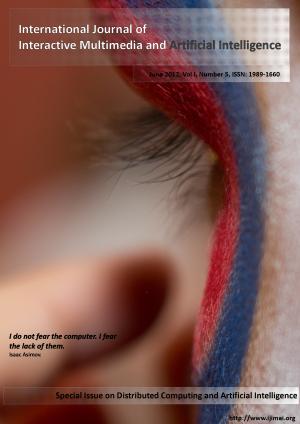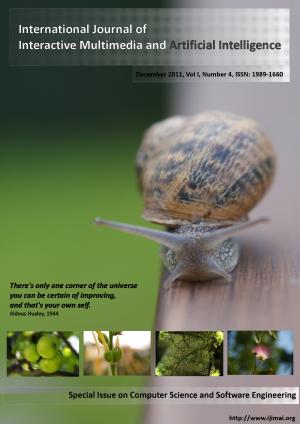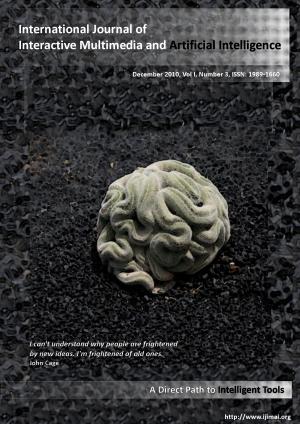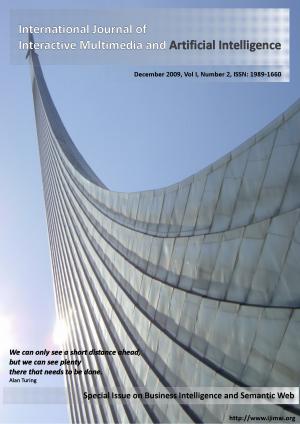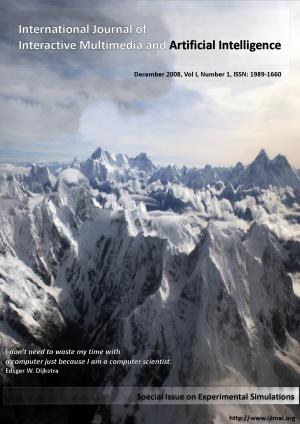IJIMAI 2013 - Special Issue on Improvements in Information Systems and Technologies - Vol. 2 Issue 3
- Year: 2013
- Vol: 2
- Number: 3
The International Journal of Interactive Multimedia and Artificial Intelligence provides an interdisciplinary forum in which scientists and professionals can share their research results and report new advances on Artificial Intelligence and Interactive Multimedia techniques.
The research works presented in this issue are based on various topics of interest, among wich are included: Mobile services, gesture recognition, physics simulation, management decision support, business intelligence, Internet, remote executables, scientific computing, university-industry links, Sony AIBO, Aperios, toolchain, MAS, data fusion, tracks, merge, inference, Homeland Security, european projects, research trends, emerging technologies and desk research.
Almulhim et al. proposes a fuzzy group prioritization method for deriving group priorities/weights from fuzzy pairwise comparison matrices. The proposed method extends the Fuzzy Preferences Programming Method (FPP) by considering the different importance weights of multiple DMs. Detailed numerical examples are used to illustrate the proposed approach.
Klein et al. introduces the Behaviour Assessment Model (BAM), which is designed to gaining insights about how well services enable, enhance and replace human activities. More specifically, the basic columns of the evaluation framework concentrate on service actuation in relation to the current user context, the balance between service usage effort and benefit, and the degree to which community knowledge can be exploited. The evaluation is guided by a process model that specifies individual steps of data capturing, aggregation, and final assessment.
Costa et al. presents SketchyDynamics, a library that intends to facilitate the creation of applications by rapidly providing them a sketch-based interface and physics simulation capabilities. SketchyDynamics was designed to be versatile and customizable but also simple. In fact, a simple application where the user draws objects and they are immediately simulated, colliding with each other and reacting to the specified physical forces, can be created with only 3 lines of code. In order to validate SketchyDynamics design choices, they also present some details of the usability evaluation that was conducted with a proof-of-concept prototype.
Skyrius et al. defines relations between simple and complex informing intended to satisfy different sets of needs and provided by different sets of support tools. The paper attempts to put together decision support and business intelligence technologies, based on common goals of sense-making and use of advanced analytical tools. A model of two interconnected cycles has been developed to relate the activities of decision support and business intelligence. Empirical data from earlier research is used to direct possible further insights into this area.
Ferreira et al. present a study, largely based on academic practice, a simple illustrative example in Geometry is implemented on a distributed system that outsources the computing-intensive tasks to remote servers that may be located in other universities or companies, linked to grids and clusters and so on. The software stack and software developed to support the communication is explained in detail. The architecture developed stresses the interoperability of the software, and a suitable high degree of decoupling between components hosted in various locations. The results of this study motivate further work and serve a practical purpose that may be useful to everyone doing scientific computing.
Castillo et al. presents an agent-based solution for data fusion in Homeland Security. The research is focused on obtaining a Multi-agent system able to inference future enemy‘s actions or behaviors from data received from heterogeneous sensors.presents a revision and an analysis of the Open Data initiative situation in Spain. The analysis looks at origins and concepts, the legal framework, current Initiatives and challenges that must be addressed for the effective reuse of public information industry.
Kertész shows an improvements of the native software development environment (Open-R SDK) provided to program AIBO are presented in the paper. More enhancements are implemented in the core components, some software methodologies are applied to solve a number of restrictions and the achievements are summarized in the contribution.
De La Fuente et al. presents a desk research that analysed available recent studies in the field of Technology Enhanced Learning. This research will be used as a basis to better understand the evolution of the sector, and to focus future research efforts on these sectors and their application to education.
Electronic File Download
IJIMAI20132_3.pdf4.06 MB

